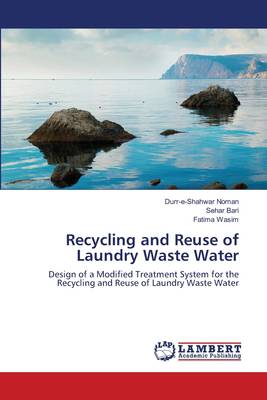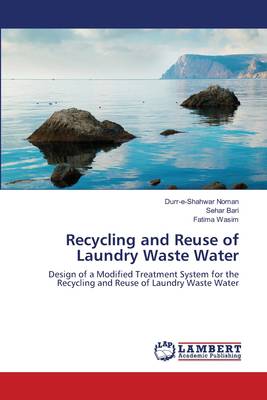
- Afhalen na 1 uur in een winkel met voorraad
- Gratis thuislevering in België vanaf € 30
- Ruim aanbod met 7 miljoen producten
- Afhalen na 1 uur in een winkel met voorraad
- Gratis thuislevering in België vanaf € 30
- Ruim aanbod met 7 miljoen producten
Zoeken
Recycling and Reuse of Laundry Waste Water
Design of a Modified Treatment System for the Recycling and Reuse of Laundry Waste Water
Durr-e-Shahwar Noman, Sehar Bari, Fatima Wasim
Paperback | Engels
€ 48,95
+ 97 punten
Omschrijving
Water is a valuable product, which should be used carefully. Increased global consumption of water has become a growing concern from a few decades, which has increased the demand of water recycling and reuse of waste-water by treating it with appropriate methods and technologies to meet the needs and aspirations of future generation. The reuse and recycling of laundry waste-water was carried out at lab scale. In this study, two random laundries were selected. A survey of PU and LCWU hostel laundries was made to characterize the laundry waste-water. A low cost sand and gravel filter was designed to reuse the laundry waste-water for the first rinse. Treated water was considered as low-grade water, which was found suitable for the first rinse of clothes in both laundries. By the uses of this low-grade water, 0.7m3 and 0.8m3 of fresh water from PU and LCWU laundries could be save daily.
Specificaties
Betrokkenen
- Auteur(s):
- Uitgeverij:
Inhoud
- Aantal bladzijden:
- 56
- Taal:
- Engels
Eigenschappen
- Productcode (EAN):
- 9783659517761
- Verschijningsdatum:
- 8/02/2014
- Uitvoering:
- Paperback
- Afmetingen:
- 150 mm x 220 mm
- Gewicht:
- 102 g

Alleen bij Standaard Boekhandel
+ 97 punten op je klantenkaart van Standaard Boekhandel
Beoordelingen
We publiceren alleen reviews die voldoen aan de voorwaarden voor reviews. Bekijk onze voorwaarden voor reviews.








